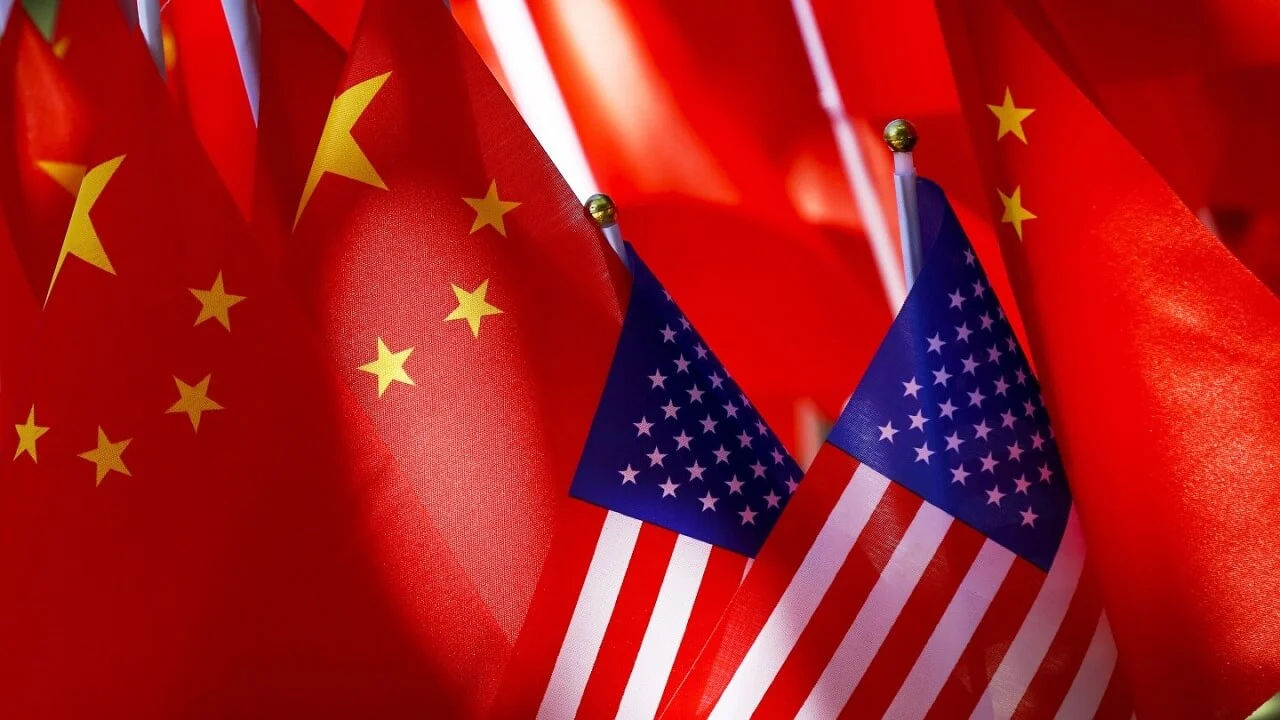Senior White House officials recently convened with executives from the telecommunications industry to discuss the ongoing threat posed by a Chinese cyber espionage campaign targeting U.S. telecom companies. The meeting, held on Friday, came on the heels of alarming reports that hackers, allegedly linked to the Chinese government, had infiltrated telecom systems and intercepted sensitive data. This breach has been described as one of the most significant cyberattacks targeting U.S. infrastructure in recent history.
Understanding the Cyber Espionage Campaign
The Scope of the Attack
The cyber intrusion was first discovered earlier this month when U.S. authorities revealed that China-linked hackers had successfully accessed telecommunications infrastructure. These attackers had managed to intercept data meant for American law enforcement agencies. While the specific telecom companies affected by the breach have not been disclosed, the scale of the attack is being described as unprecedented.
Senator Mark Warner, who chairs the Senate Intelligence Committee, went so far as to describe the breach as the “worst telecom hack in our nation’s history — by far,” emphasizing the severity of the situation. This alarming revelation has raised significant concerns about the vulnerability of the telecommunications sector to state-sponsored cyberattacks.
White House Response and Actions
In response to the breach, the White House organized a high-level meeting, led by National Security Adviser Jake Sullivan and Anne Neuberger, Deputy National Security Adviser for Cyber and Emerging Technology. The purpose of this meeting was to gather input from telecommunications industry leaders on how the U.S. government can assist the private sector in bolstering their defenses against these sophisticated nation-state cyberattacks.
Collaborative Efforts to Strengthen Cyber Defenses
The White House’s statement highlighted that the meeting served as an opportunity to discuss ways in which the U.S. Government can partner with telecommunications companies to better protect against future cyber threats. As state-sponsored cyberattacks continue to evolve in sophistication, strengthening collaboration between the government and private sector is seen as a critical step in securing vital infrastructure.
Although specific names of the telecom executives in attendance were not released, the meeting underscores the growing concerns surrounding cybersecurity within the telecom industry. As telecom networks are critical to national security, protecting these systems is now a priority for the Biden administration.
China’s Denial of Cyberattack Allegations
China’s Response to the Allegations
Despite mounting evidence and public statements from U.S. officials, China has consistently denied any involvement in cyberattacks against foreign nations. Beijing has labeled such accusations as unfounded and politically motivated, maintaining that it adheres to international laws and norms concerning cyber activities. Chinese officials have called for dialogue to resolve misunderstandings related to cyber activities and have repeatedly rejected claims of state-sponsored hacking.
The Growing Threat of Cyber Espionage
Cyber espionage has become a critical concern for governments worldwide. The use of advanced persistent threats (APTs) by nation-states, such as China, has increasingly targeted sectors ranging from telecommunications to defense and energy. The ability to hack into sensitive systems and intercept confidential communications presents a significant risk to national security.
Telecommunications as a Vulnerable Target
Telecommunication companies are particularly vulnerable due to the central role they play in global communication infrastructure. Hackers targeting telecom companies can gain access to a wealth of private data, including communications between government agencies, businesses, and individuals. With access to such sensitive information, malicious actors can potentially manipulate or disrupt critical operations.
What’s at Stake: National Security and Economic Interests
The telecom industry is a linchpin of the U.S. economy and its national security. A successful cyberattack on telecom infrastructure can have far-reaching consequences, including compromising the integrity of communications, financial systems, and governmental operations. Given the sensitive nature of the intercepted data, national security agencies have expressed concern about the risks posed to U.S. interests.
Impact on U.S.-China Relations
Strained Diplomatic Tensions
The recent cyberattack is yet another point of contention between the United States and China, which have been engaged in an ongoing geopolitical rivalry. Tensions between the two superpowers have escalated over issues such as trade imbalances, technological supremacy, and military expansion in the Asia-Pacific region.
A Focus on Cybersecurity and Diplomacy
The U.S. government has long called for a global framework to regulate cyberspace, and this cyber espionage incident highlights the need for international cooperation in combating cyber threats. Experts believe that the attack could further complicate diplomatic relations, especially as both nations engage in a race for technological dominance.
China’s Growing Cyber Capabilities
China’s advanced cyber capabilities have become a significant concern for many Western countries. The Chinese government has been accused of supporting cyber espionage campaigns that target not only government agencies but also private companies and critical infrastructure worldwide. The growing threat of these cyber activities underscores the importance of developing robust cybersecurity measures and international cyber norms.
Frequently Asked Questions (FAQs)
1. What happened in the recent telecom hack?
U.S. authorities discovered that hackers linked to China had infiltrated telecom systems, intercepting sensitive surveillance data meant for American law enforcement agencies. The breach is considered one of the worst telecom hacks in U.S. history.
2. How did the White House respond to the hack?
The White House organized a meeting with telecom executives to discuss how the U.S. government could assist the private sector in defending against sophisticated cyberattacks. National Security Adviser Jake Sullivan and Deputy National Security Adviser Anne Neuberger led the meeting.
3. What is the significance of the telecom sector in national security?
Telecommunications are critical to national security, as they support communication systems vital for government operations, business activities, and the overall economy. A successful attack on telecom infrastructure could disrupt these operations.
4. Has China denied involvement in the hack?
Yes, China has denied any involvement in the cyberattack and rejected allegations of state-sponsored hacking. The Chinese government has called for dialogue to address misunderstandings about its cyber activities.
5. Why is cybersecurity important in the context of global relations?
As cyber threats evolve, countries need to cooperate to establish global frameworks for securing cyberspace. Cyberattacks have the potential to strain diplomatic relations and disrupt international trade, technology, and communications.
Conclusion
The White House’s recent meeting with telecom executives highlights the growing concerns about the impact of cyber espionage on national security. As the threat from sophisticated nation-state actors like China continues to grow, stronger collaborations between the U.S. government and private sectors will be essential to protect critical infrastructure. The ongoing geopolitical tension between the U.S. and China, coupled with the rise of cyber threats, signals the need for a comprehensive approach to international cybersecurity governance.
ALSO READ:
https://flarenews.pk/2024/11/23/saudi-arabia-enters-crickets-spotlight-with-ipl-auction/



